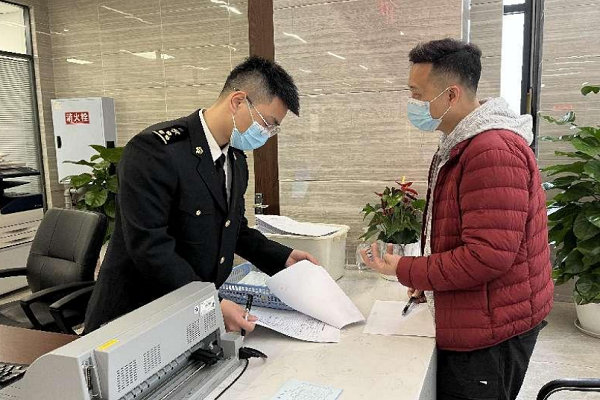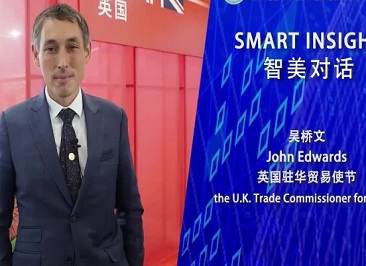First imported goods under RCEP arrive at Guoyuan port
Updated:2022-03-07
english.liangjiang.gov.cn
 |
|
A staff member of Chongqing Customs describes customs clearance procedures to a business man. [Photo/liangjiang.gov.cn] |
A group of offset presses sent from Japan recently arrived at Guoyuan port in Liangjiang New Area, Southwest China's Chongqing municipality, becoming the first imported goods benefiting from the Regional Comprehensive Economic Partnership (RCEP) in Chongqing.
The goods are worth 3.66 million yuan ($585,248), and 22,457 yuan in tariffs were cut due to the RCEP certificate of origin. "We have assigned special staff to offer help with customs clearance to enterprises. The service will prevent goods from being detained for firms unclear about the clearance procedures," said Si Kao, an official from Chongqing Customs.
RCEP took effect on Jan 1 this year, marking the establishment of the world's largest free trade zone by population, creating unprecedented development opportunities. The partnership involves trade among six ASEAN countries – Brunei, Cambodia, Singapore, Thailand, Vietnam and Laos – and four non-ASEAN countries – China, Japan, New Zealand and Australia.
"Many goods we are dealing with are from countries and regions under the RCEP framework, such as carburetor engines and lawn mowers exported to Australia and New Zealand," said Liao Jia, vice general manager of Chongqing Sinotrans Customs Co. "Cargo owners will raise their products' market competency due to the tariff reduction, and consumers will also benefit from the partnership," Liao added.
From January to February, Chongqing signed 111 RCEP certificates of origin, involving goods worth 87.94 million yuan.
Guoyuan port will seize new opportunities brought about by RCEP and promote trade with its member countries, especially those from Southeast Asia.
Video

John Edwards, the UK trade commissioner for China, praised Chongqing over its rise as a burgeoning center in intelligent manufacturing.





